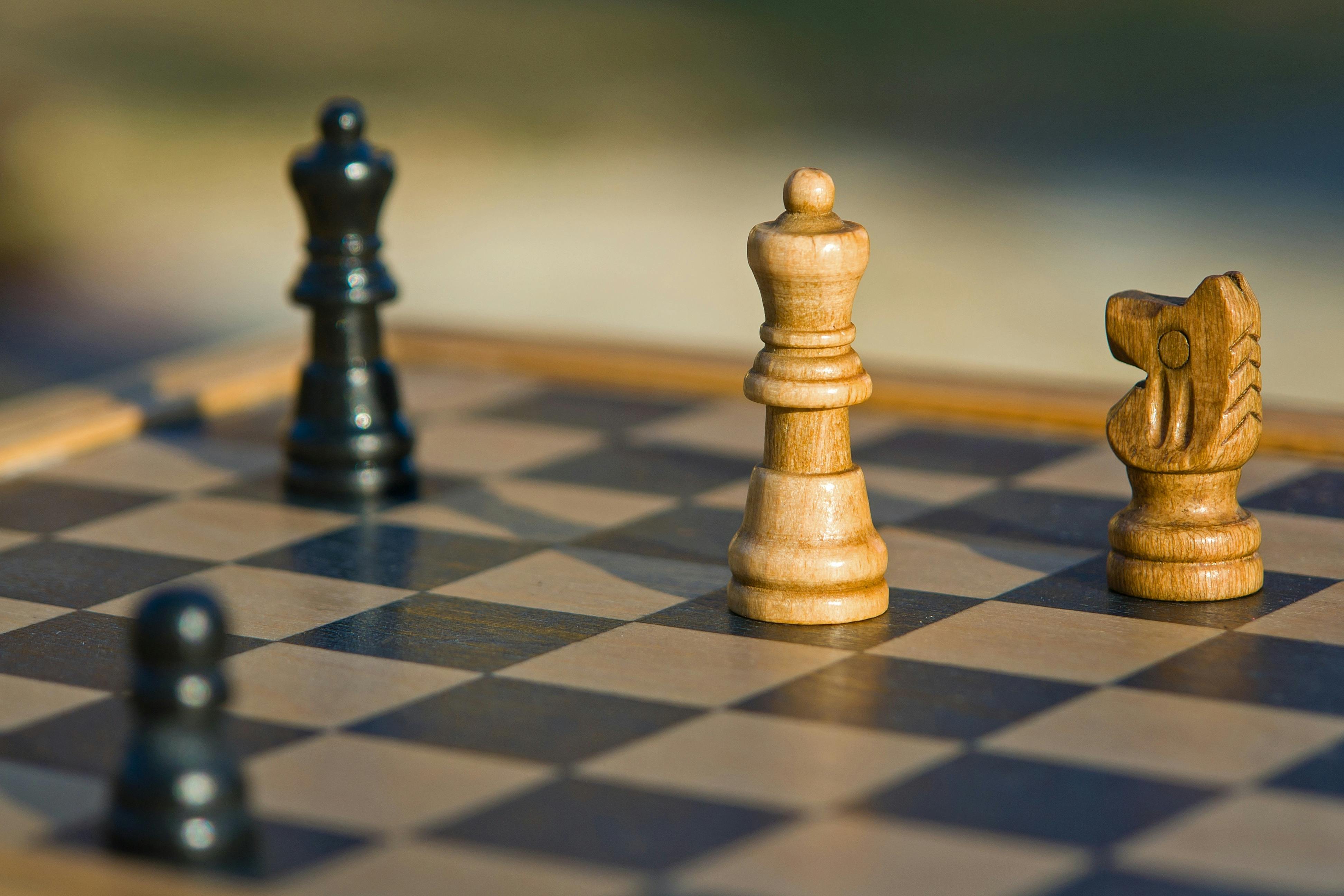Essential Chess Strategies for New Players
Wiki Article
Why You Must Play Chess: The Benefits of Involving in This Ageless Pundit Difficulty
Chess is more than an easy game; it acts as a strenuous psychological exercise that hones various cognitive abilities. Gamers take part in calculated reasoning and establish problem-solving abilities, which can have long lasting advantages in daily life. The self-control needed for enhancement cultivates patience and strength. The true essence of chess exists not just in its intellectual demands yet in the links it promotes within an area. Exploring these measurements reveals much concerning why chess stays classic.Enhancing Cognitive Skills
Playing chess considerably improves cognitive skills, making it an important activity for individuals of all ages. The video game needs critical reasoning and foresight, requiring players to anticipate their opponent's actions while developing a winning method. This mental exercise hones focus and focus, necessary components of cognitive feature.
Additionally, chess encourages creativity, triggering gamers to discover cutting-edge techniques and unusual strategies to the game. As they navigate the chessboard, people develop perseverance and strength, essential attributes for cognitive development. On the whole, the diverse cognitive benefits of chess make it an enriching pursuit, advertising long-lasting imagination and intellectual interaction.
Boosting Problem-Solving Talents
Various studies have actually shown that engaging in chess can greatly enhance analytic capacities. The game calls for players to examine complicated settings and expect the opponent's actions, cultivating important thinking abilities. As they browse different situations, chess players create the capacity to review several results and make critical choices under stress. This procedure improves their capacity to strategy real-life problems with an organized frame of mind.In addition, chess advertises the recognition of patterns and the application of logical reasoning, skills that are essential in effective problem-solving. Gamers discover to analyze risks and benefits, refining their judgment in unpredictable circumstances. The recurring nature of chess play reinforces these abilities, enabling individuals to move their boosted analytic capabilities to academic and expert contexts. Ultimately, chess acts as a valuable tool for anyone seeking to develop their logical skills and improve their general cognitive performance in tough circumstances.
Growing Patience and Discipline
While involving in chess can be an interesting experience, it likewise needs a significant level of patience and discipline. Gamers must find out to thoroughly think about each relocation, evaluating possible results and strategies. This thoughtful approach cultivates a mindset that values long-term success over instant gratification. In chess, hasty decisions commonly cause undesirable consequences, reinforcing the significance of taking one's time to examine the board and expect a challenger's responses.
Discipline is more grown through consistent technique and research study. Players commonly dedicate hours to enhancing their abilities, researching strategies, and evaluating previous games. This commitment to grasping the game instills a feeling of obligation and perseverance, crucial qualities that expand beyond the chessboard. Eventually, the mix of perseverance and discipline not just enhances a gamer's chess capabilities but additionally adds to individual growth, gearing up people with vital tools for navigating difficulties in numerous aspects of life.
Cultivating Creativity and Creative Imagination

Strategizing actions involves not just logic however likewise the capability to anticipate a challenger's feedbacks, encouraging players to picture numerous paths and options. As gamers experiment with various methods, they learn to introduce and adjust, improving their creative analytical abilities.
The game's intricacy invites players to check out unusual concepts and methods, leading to individual designs of play - Chess. This exploration supports a sense of creative expression, as each gamer crafts their own approach to obstacles on the board. Ultimately, chess ends up being a canvas for creativity, permitting people to share their unique point of views while creating their creative abilities
Building Social Connections and Community
Playing chess supplies possibilities for people to network with tournaments and local chess clubs. These environments cultivate links among players, developing a sense of community centered around a common passion. Engaging in these activities not only improves skills however also builds long-term connections.Networking With Tournaments
When participants participate in chess tournaments, they frequently locate themselves involved in a vibrant community of like-minded individuals. These events give go to website an outstanding platform for players to create connections, share approaches, and celebrate their interest for the game. Engaging in friendly competition fosters camaraderie, as players from diverse backgrounds integrated to challenge each other. Networking chances abound, with many individuals creating long lasting friendships that expand beyond the chessboard. Furthermore, these events usually draw in sponsors and look at here now chess fanatics, further improving the potential for expert connections. As gamers participate in conversations about strategies and experiences, they develop a network that can bring about future collaborations and opportunities within the chess world and beyond.Local Chess Clubs

Offering an Enjoyable and Engaging Challenge
Chess provides an uniquely promoting experience that astounds players of every ages, as it combines critical thinking with the adventure of competition. This classic video game provides an engaging difficulty, encouraging people to think seriously and artistically. Each match unfolds as a battle of wits, where gamers have to anticipate their challenger's relocations while creating their very own techniques.The intellectual engagement chess provides is matched by its ability to captivate. Players frequently find themselves immersed in the game, shedding track of time as they navigate intricate settings and tactical issues (Chess). This increased focus promotes a sense of achievement, visit here particularly when a tough move leads to victory
Chess promotes social interaction, enabling players to bond over common experiences and difficulties. The video game's countless variants guarantee that no two sessions are alike, maintaining individuals enthusiastic to refine their skills and methods. This vibrant mix of difficulty and pleasure makes chess an alluring quest.
Often Asked Questions
Can Chess Be Played Online or Only in Individual?
Chess can be played both online and face to face. On the internet systems offer players the convenience of contending versus challengers worldwide, while in-person games cultivate social interaction and physical existence, enhancing the total experience.What Age Is Ideal to Begin Learning Chess?
Professionals suggest that kids can start learning chess as very early as age 5 or six. At this age, they can grasp fundamental concepts, boosting cognitive abilities while fostering a love for the game that lasts a life time.Exist Chess Tournaments for Beginners?
Yes, there are chess competitions specifically made for novices. These events give a helpful setting for novice players to acquire experience, boost their skills, and appreciate the competitive spirit of chess without encountering sophisticated challengers.How much time Does It Take to Become Efficient at Chess?
Becoming skilled at chess generally calls for regular method over numerous months to years. Aspects such as private commitment, previous experience, and research study of methods greatly affect the time needed to get to a proficient degree.What Resources Are Readily Available for Knowing Chess Techniques?
Various sources exist for discovering chess methods, including online tutorials, books by renowned authors, chess applications, and interactive web sites. Several gamers additionally take advantage of signing up with local clubs or participating in on-line forums for real-time insights.Report this wiki page